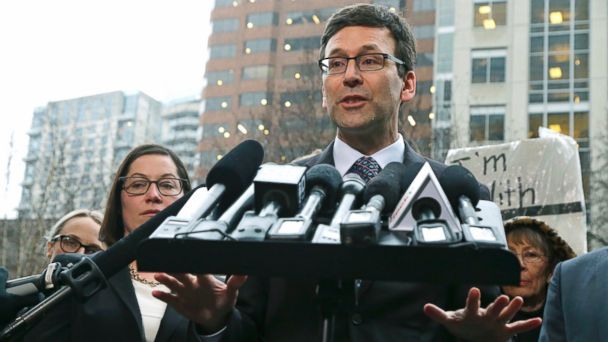US judge blocks Trump's travel ban nationwide
Sat 04 Feb 2017, 12:35:20

A U.S. judge on Friday imposed a nationwide hold on President Donald Trump's ban on travelers and immigrants from seven predominantly Muslim countries, siding with two states that had challenged the executive order that has launched legal battles across the country
U.S. District Judge James Robart in Seattle ruled that Washington state and Minnesota had standing to challenge Trump's order, which government lawyers disputed, and said they showed their case was likely to succeed."The state has met its burden in demonstrating immediate and irreparable injury," Robart said. "This TRO (temporary restraining order) is granted on a nationwide basis
It wasn't immediately clear what happens next for people who had waited years to receive visas to come to America. The Department of Homeland Security wouldn't comment, but the State Department had previously ordered visas from the seven countries revoked.
Trump's order last week sparked protests nationwide and confusion at airports as some travelers were detained. The White House has argued that it will make the country safer.
Washington became the first state to sue over the order that temporarily bans travel for people from Iran, Iraq, Syria, Sudan, Somalia, Libya and Yemen and suspends the U.S. refugee program.
State Attorney General Bob Ferguson said the travel ban significantly harms residents and effectively mandates discrimination. Minnesota joined the lawsuit two days later.After the ruling, Ferguson said people from the affected countries can now apply for entry to the
U.S.
U.S.
"Judge Robart's decision, effective immediately ... puts a halt to President Trump's unconstitutional and unlawful executive order," Ferguson said. "The law is a powerful thing — it has the ability to hold everybody accountable to it, and that includes the president of the United States."
Gillian M. Christensen, a spokeswoman for the Department of Homeland Security, said the agency doesn't comment on pending litigation. The judge's ruling could be appealed the 9th U.S. Circuit Court of Appeals.The judge's written order, released late Friday, said it's not the court's job to "create policy or judge the wisdom of any particular policy promoted by the other two branches" of government.
The court's job "is limited to ensuring that the actions taken by the other two branches comport with our country's laws."
Robart ordered federal defendants "and their respective officers, agents, servants, employees, attorneys and persons acting in concert or participation with them are hereby enjoined and restrained from" enforcing the executive order.
A State Department official, speaking on condition of anonymity because the matter is under litigation, said Friday: "We are working closely with the Department of Homeland Security and our legal teams to determine how this affects our operations. We will announce any changes affecting travelers to the United States as soon as that information is available.?"
Federal attorneys had argued that Congress gave the president authority to make decisions on national security and immigrant entry.
No Comments For This Post, Be first to write a Comment.
Most viewed from International
Most viewed from World
AIMIM News
Latest Urdu News
Most Viewed
May 26, 2020
Do you think Canada-India relations will improve under New PM Mark Carney?
Latest Videos View All
Like Us
Home
About Us
Advertise With Us
All Polls
Epaper Archives
Privacy Policy
Contact Us
Download Etemaad App
© 2025 Etemaad Daily News, All Rights Reserved.



.jpg)






.jpg)
.jpg)








.jpg)
.jpg)
.jpg)
.jpg)
.jpg)

















